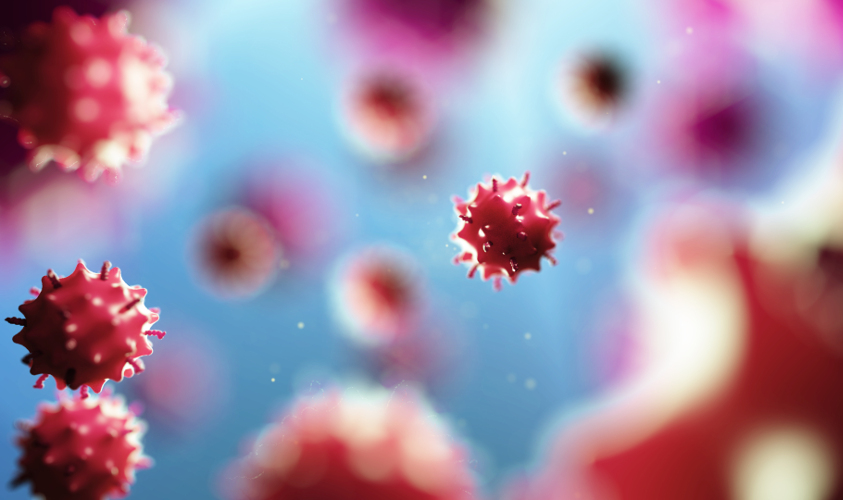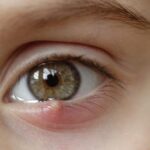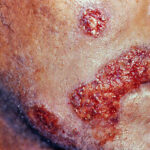Recurrent herpes simplex infection refers to the reactivation of latent herpes simplex virus (HSV), primarily types HSV-1 and HSV-2. Following the initial episode, the virus enters a latent state in sensory nerve ganglia and may reactivate periodically, leading to recurrent clinical or subclinical episodes. HSV-1 typically affects the orofacial region, while HSV-2 is more commonly associated with genital infections. The frequency and severity of recurrences vary among individuals and are influenced by several biological and environmental factors.

Pathophysiology of HSV Recurrence and Latency
After primary infection, HSV establishes latency in the trigeminal (HSV-1) or sacral ganglia (HSV-2). Reactivation is triggered by stressors such as immunosuppression, fever, UV radiation, trauma, or hormonal changes.
Upon reactivation, the virus travels down the sensory nerve to the skin or mucosal surface, resulting in recurrent lesions, often at the same anatomical site.
Clinical Features of Recurrent HSV Infections
Orofacial Herpes (HSV-1)
- Tingling, burning, or itching (prodromal symptoms)
- Clusters of vesicles on lips, face, or intraoral mucosa
- Lesions crust over and heal within 7–10 days
Genital Herpes (HSV-2)
- Painful vesicles or ulcers in the genital or perianal area
- Dysuria, lymphadenopathy, and systemic flu-like symptoms may accompany primary episodes
- Recurrences tend to be milder and shorter in duration
Goals of Suppression Therapy
- Reduce frequency and severity of recurrences
- Decrease viral shedding and risk of transmission
- Improve patient quality of life
- Prevent complications, including herpes keratitis and neonatal herpes
Antiviral Agents for HSV Suppression
1. Acyclovir
- Mechanism: Inhibits viral DNA polymerase after phosphorylation by viral thymidine kinase
- Oral Suppression Dosage: 400 mg twice daily
- Efficacy: Reduces recurrence by 70–80% in frequent relapsers
- Limitations: Poor oral bioavailability; requires frequent dosing
2. Valacyclovir
- Prodrug of acyclovir with improved bioavailability
- Dosage: 500 mg once or twice daily (based on recurrence frequency)
- Preferred for ease of dosing and high patient compliance
- Also reduces HSV transmission risk in serodiscordant couples
3. Famciclovir
- Prodrug of penciclovir
- Dosage: 250 mg twice daily
- Effective for both HSV-1 and HSV-2
- May provide better suppression in some patients who do not tolerate acyclovir
4. Topical Antivirals
- Limited efficacy in suppression
- Best suited for early treatment of symptomatic outbreaks (e.g., topical acyclovir cream)
Suppression Therapy Guidelines
| Frequency of Recurrences | Suppression Recommendation |
|---|---|
| ≥6 episodes/year | Long-term suppressive therapy |
| <6 episodes/year | Episodic treatment or patient preference |
| Immunocompromised | Mandatory continuous suppression |
| Pregnant women (HSV-2) | Suppression from 36 weeks gestation |
Duration: Suppressive therapy is typically evaluated after 6–12 months. Some patients may require indefinite therapy based on recurrence pattern and psychological impact.
Managing HSV in Special Populations
Immunocompromised Individuals
- Higher risk of severe, prolonged, and disseminated infections
- Require higher antiviral doses and longer courses
- Resistance to acyclovir may occur; foscarnet or cidofovir used in resistant cases
Pregnant Women
- HSV-2 suppression reduces risk of neonatal herpes
- Valacyclovir 500 mg BID from 36 weeks gestation is standard
- Cesarean delivery recommended for active lesions at labor
HIV-Positive Patients
- More frequent and severe recurrences
- HSV suppression may lower HIV viral load and shedding
- Requires long-term daily antiviral prophylaxis
Non-Pharmacologic and Adjunctive Strategies
Lifestyle and Trigger Management
- Avoid known triggers: UV exposure, emotional stress, fever
- Use of lip sunscreen with SPF >30 for orolabial HSV
- Proper genital hygiene and consistent condom use
- Stress reduction techniques such as yoga or cognitive therapy
Immunomodulatory Approaches
- Investigational vaccines and T-cell-based therapies
- HSV-2 therapeutic vaccine candidates (e.g., GEN-003, HSV529) are in clinical trials
Nutritional Support
- Lysine supplements may reduce recurrence frequency
- Reduce arginine-rich foods (nuts, chocolate) which may promote HSV replication
Future Perspectives in HSV Suppression
- Gene editing technologies like CRISPR-Cas9 being explored for latent virus eradication
- mRNA-based vaccine research following COVID-19 advances
- Improved delivery systems for antivirals, including sustained-release formulations
Suppressing recurrent herpes simplex infection requires a multifaceted approach encompassing continuous antiviral therapy, lifestyle modifications, and individualized care plans. Advances in pharmacology and immunotherapy hold promise for long-term disease control and eventual eradication. Consistent suppressive therapy not only benefits the affected individual but also plays a significant role in public health management by reducing asymptomatic shedding and transmission.

